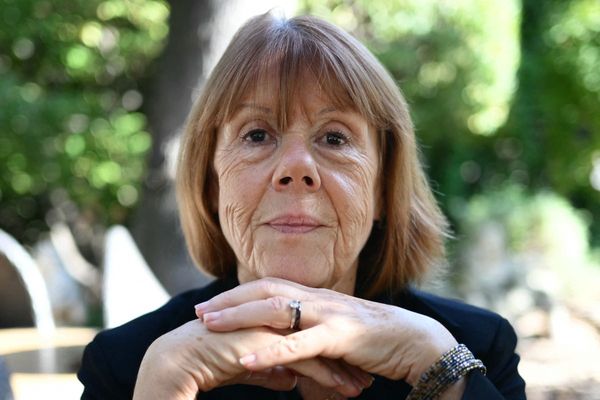
On Thursday, I stood in Gray’s Inn and spoke words I had hardly dared to hope I would say: “This is a victory for women’s rights and free speech.” I had been locked in a battle with my regulatory body, the Bar Standards Board, for more than two and a half years and finally it was over. I won. They had accused me, a women’s rights barrister, of five counts of professional misconduct. My so-called crime? Criticising a domestic abuse judgment on social media.
I had represented a woman who alleged her husband had coercively controlled her into signing a postnuptial agreement. I argued that the high court judgment by Sir Jonathan Cohen had victim-blamed the wife, trivialised domestic abuse and pathologised her. I was accused of damaging the authority, impartiality and reputation of the entire judiciary. That’s no mean feat for a 34-year-old woman. I also said the ruling reflected a “boys’ club” attitude – at the time, the judge was a member of the then all-male Garrick Club. For that, I was accused of using gender-based, derogatory language for insinuating the judge is part of or influenced by “the boys’ club”.
Earlier this year, the same judge was set to hear a case involving a rape complainant. I successfully applied to have him recused, arguing that his membership of the Garrick Club raised concerns of bias, unfairness and prejudice, partly because the father in the case was also a regular visitor to the club. Then, in another twist, I discovered that Philip Havers KC, the judge assigned to my disciplinary case, was also a Garrick member. My formal request for his recusal due to potential bias was granted.
I was staring down a 12-month suspension, a £50,000 fine and a hefty costs order. They wanted to silence me for criticising the judiciary – still largely male, pale and stale – and for calling out sexist language in our courts. Meanwhile, male barristers who publicly called a judge “stupid” and an “idiot” got a free pass. And when they called me a “cunt”, “wanker” and “mentally ill”, my regulator shrugged it off as their right to free speech. So it’s fine for male barristers to attack judges and a female barrister, but heaven forbid I question a powerful judge’s domestic abuse ruling. One rule for the boys, and another for me.
When I arrived at the tribunal on the morning of the first day, I was met by a group of courageous women (some were my former clients, including a teenager I had represented) and men (whose daughters, sisters and wives I had represented) with placards reading “double standards board” and “blatantly sexist board”. They were showing their support not just for me, but for what my case stood for – a fundamental right to highlight systemic failings in the family justice system.
The panel presiding over my disciplinary hearing threw the charges out. It said there was “no case to answer” and ruled the mighty judiciary of England and Wales was robust enough to withstand criticism. But suffering a relentless prosecution for charges that should never have been brought has had a profound impact, one that I cannot fully describe. Let’s just say it has left lasting scars. If I had lost this case, it would have had a chilling effect on women’s right to free speech. Truthfully, it already has – I find myself self-censoring, haunted by the fear of this nightmare repeating.
When I spoke out about the minimisation of domestic abuse in my former client’s case, I was speaking about a pattern of institutional failings in family courts to protect women and children from the lifelong harm caused by domestic abuse. Most family courts cases never see the light of day as they are not open to the public. Fortunately, the Reporting Pilot was launched, allowing journalists to attend and report on hearings. Family law disputes, where parents fight for contact with their children, often involve serious allegations of domestic abuse. I spend my days explaining to judges and professionals why contact between a child and an abusive parent is dangerous. Time and again, my evidence-backed arguments go unheard. Sometimes, I wonder if the child will come out alive.
Last week, news broke that the family court placed Sara Sharif, a young child, into the care of her father, a man who had been accused of multiple incidents of domestic abuse. Sara’s father and stepmother went on to murder her. Women’s Aid published a study in 2016 showing 19 children and two women were killed by male perpetrators who had access to their children through contact arrangements. The Ministry of Justice published the Harm report in June 2020, which showed a pro-contact culture, the systemic minimisation and disbelief of abuse, and stereotypical views of how an “ideal victim” should behave. Jacky Tiotto, chief executive of the Children and Family Court Advisory and Support Service (Cafcass), published groundbreaking new domestic abuse guidance in October this year along with an apology: “I am sorry that some four years on from the Harm Panel report, there are still children and adults in family court proceedings who do not receive the protection they deserve and require.”
Dismissing rape complaints because a woman was too educated, or saying an “intelligent lady” would have remembered the date she was raped, or finding that she could have just left (despite it taking victims on average seven attempts before they finally escape), or threatening a rape complainant with having her child adopted, are the types of comments I hear uttered by judges. Our family courts have serious problems, and we must be free to criticise them and speak out – our democracy and public safety depend on it.
Winning against my regulatory body’s attempt to silence me is a landmark victory. It sets an important precedent, allowing me – and other legal professionals – to speak out against injustice and sexism. I spoke up for women, so we all have the right to be heard. After all, sunlight is the best disinfectant.
Charlotte Proudman is an award-winning barrister specialising in family law and violence against women and girls, founder of Right to Equality, a not-for-profit campaigning to change the law for women and children, and a research associate at the University of Cambridge
Do you have an opinion on the issues raised in this article? If you would like to submit a response of up to 300 words by email to be considered for publication in our letters section, please click here.
• This article was amended on 18 December 2024. Jacky Tiotto is the current, not former, chief executive of the Children and Family Court Advisory and Support Service.










